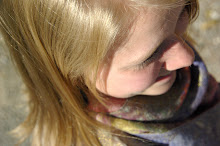its pretty exciting. but boring. at the same time. if that's even possible.
- - - - - - - - - -
The life and music of:
Robert Schumann (1810-1856)
Robert Schumann was born in
In the 1830s, his hectic life was intensified by his courtship of the gifted pianist and composer, Clara Wieck, daughter of his teacher. Her father opposed the marriage with a vehemence that bordered on the psychopathic. Clara was his supreme achievement, and he refused to surrender her to another. The couple was forced to go the court against him, and in 1840, they were married. Robert was 30, and Clara 21. This was Robert’s year of song, in which he composed over 100 Lieder, which represent his lyric gift at its purest.
The two musicians settled in
In 1850, Schumann was named the director of Düssendorf, but he was ill suited for public life, so he had to retire from the post. He began to complain of unnatural noises in his head. He continued to experience auditory hallucinations, once even rising in the middle of the night to write down a theme he imagined had been brought to him by spirits of Schubert and Mendelssohn. This was his last melody. A week later, in a fit of depression, he threw himself in the
Schumann is the true romantic. His piano pieces brim with impassioned melodies, novel changes in harmony, and driving rhythms. He often attached literary meanings to his music, giving them characteristic titles. He was especially fond of cycles of short pieces connected by a literary theme or musical motto.
Schumann ranks second only to Schubert in composing Lieder. A common theme he liked to use was love, especially from a woman’s point of view. His four symphonies are Romantic in feeling, and communicate a lyric freshness that has preserved their appeal.











